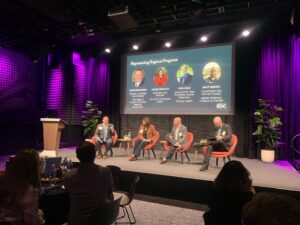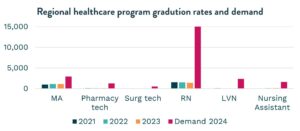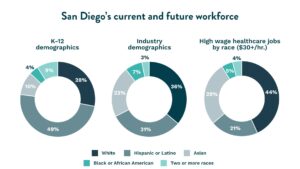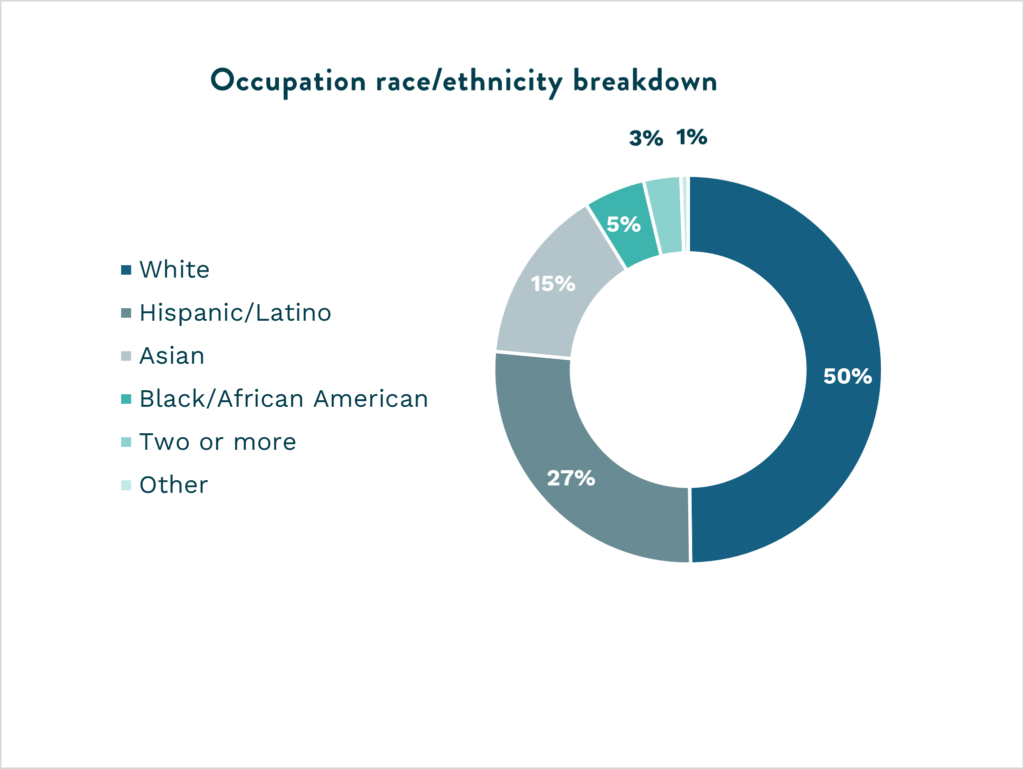To better understand San Diego’s talent demand in priority industries, EDC’s Advancing San Diego program partnered with BW Research to conduct a comprehensive talent demand survey focused on business, computing, and engineering occupations. A survey of 264 businesses in San Diego County was fielded in March 2025. The survey prioritized larger firms to develop a more comprehensive profile of each of the listed occupations. All companies surveyed had at least five employees. Participation spanned all four of the primary regions in San Diego (North County, South County, East County, and Central San Diego) and several industries to ensure diversity of responses.

Talent Demand Report 2025 updates
This data-driven effort supports Advancing San Diego’s Verified Program process and provides a real-time look at the workforce needs of local employers. Results show that while businesses are ready to grow, many face ongoing challenges in finding candidates with the skills and certifications needed to fill both entry- and mid-level roles.
Key findings
- The largest share of employers considered internally-facing business roles—finance, purchasing, or project management positions—the most important out of all business, computing, and engineering roles.
- The most difficult entry-level roles to fill included general engineers, project managers, engineering technicians, and software developers.
- Businesses that prioritized engineers cited engineering as the most difficult occupation to fill with qualified entry-level talent.
- Entry-level software developer roles took the longest for companies to fill, with 19 percent of companies reporting that it takes more than six months to fill this role.
- The most challenging experienced position to fill was software developers, followed closely by experienced general engineers.
- In computing, employers prioritized IT and network security skills, with certifications like A+, Security+, and CCNA frequently required or preferred.

What’s next?
Advancing San Diego verifies educational programs that meet or exceed industry expectations across five key areas. Programs that earn this designation gain public recognition and connection to regional employers.
The 2025 application is now open for business, computing, and engineering programs. Programs that are already verified do not need to reapply; see current roster here.
Timeline
- April 21: Verified Program application opens
- September 26: EDC notifies programs that passed part one of the application process
- November 13: Verified Program Designation Day
- Programs pitch to industry to share diversity, equity, and inclusion efforts at in-person event. Industry participants fill out rubrics based on program pitches as part two of the application
- Early December: EDC announces Verified Programs
Explore more Talent Demand Reports
Check out Talent Demand Reports across other priority sectors to stay up to date on workforce trends in San Diego.
Dive into the data
Use EDC’s Data Dashboard to explore how local education programs align with regional workforce needs and identify equity gaps in real-time. The dashboard highlights race and gender disparities, program completions, and connections to priority occupations—all designed to support more data-informed talent development efforts.
To learn more and get involved in EDC’s work, contact:

Olivia Jones
Coordinator, Talent Initiatives











